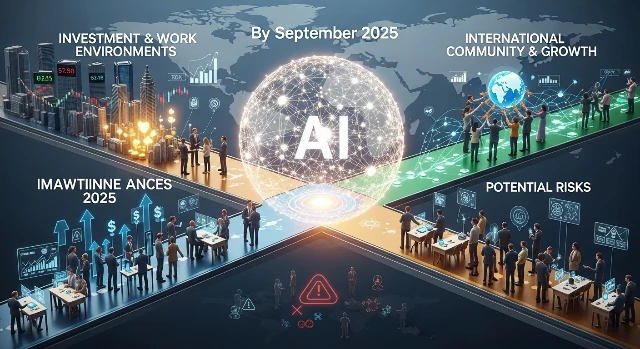
“AI at the Crossroads: Innovation for Growth or Threat to Stability?”
On September 24, 2025, South Korean President Lee Jae-myung presided over a UN Security Council debate on AI and international peace. He described AI as a revolutionary tool that is reshaping knowledge, security, and the economy, but also warned that unchecked development could destabilize global order. Lee stressed the need for “responsible AI” and called for international cooperation to build governance frameworks that ensure AI benefits all while reducing risks. This moment highlights a key dilemma: AI is driving investment, transforming workplaces, and accelerating innovation, but it also brings risks of misinformation, inequality, and geopolitical conflict. 👍 Argument 1: Innovation for Growth AI is boosting productivity and competitiveness across industries. From healthcare and education to science and defense, it creates opportunities for progress. With President Lee’s vision of “AI for all” and strong international cooperation, AI could reduce inequality and drive inclusive growth. 👎 Argument 2: A Threat to Stability AI is advancing faster than regulations, raising risks of misuse, surveillance, and cyber conflict. Unequal access may deepen global divides and fuel tensions. Without governance, AI could erode trust and threaten both democracy and stability. ⚖️ Key Issues ● Growth vs Risk: Does AI’s economic potential outweigh its destabilizing effects? ● Leadership vs Regulation Gap: Can international initiatives like President Lee’s proposal translate into real frameworks? ●Cooperation vs Competition: Will nations unite to govern AI, or weaponize it for
flo-mfw
Views 175 • (Edited)